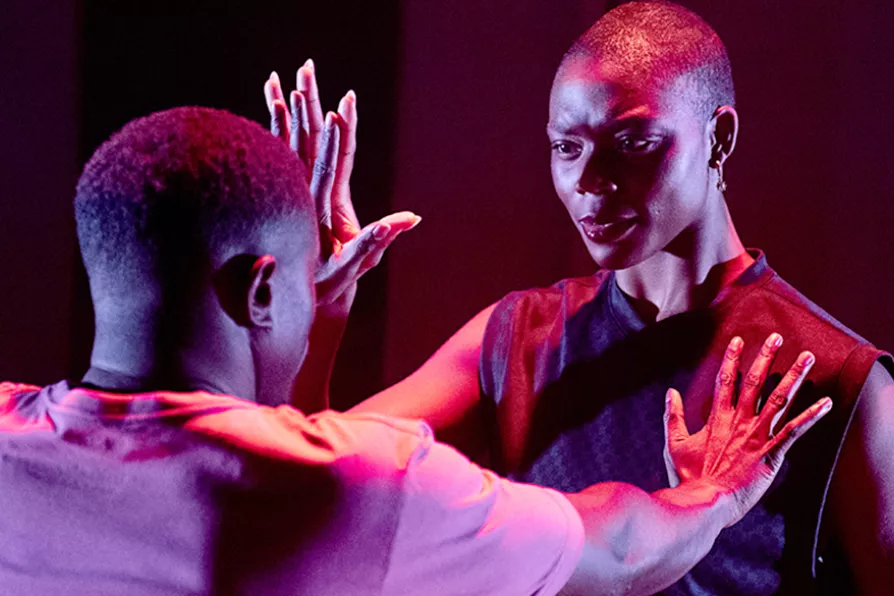RITA DI SANTO draws attention to a new film that features Ken Loach and Jeremy Corbyn, and their personal experience of media misrepresentation

 (L-R) Fode Simbo as Kayode, Selina Jones as Itan
[Camilla Greenwell]
(L-R) Fode Simbo as Kayode, Selina Jones as Itan
[Camilla Greenwell]
An Unfinished Man
The Yard
“‘Juju’s manefestin stagnancy,/ policin me./ I want to enter life anew./ Renewed./ Without my destiny being screwed / skewered / by the witches and wizards of Lagos.”
East Londoner Kayode (Fode Simbo) is trapped under the tyranny of a hex. A curse of history, God or circumstance? It’s not quite clear but he hasn’t had a job in seven years and the weight of his burden is becoming too much to bear. He languishes in a centre stage pool throughout – a metaphor for his isolation.
In desperation he turns to Pastor Matanmi (Mark Springer) but all is not what it seems when he corners him outside the toilet of Kayode’s church. Unbeknown to him, his mother has set up the encounter having used the pastor’s service to overcome her own curse.
His wife Kikiope (Teri Ann Bobb-Baxter), or Keeks as Kayode calls her, is convinced that he is suffering from depression and desperate for him to contact her therapist who has helped her with her own difficulties.
All these different cooks are only souring Kayode’s broth, and he is left to confront his demons alone. These are physically embodied by Itan (Selina Jones) whose domineering presence haunts his every move – a singular Greek chorus he is constantly wrestling with and talks to in a unique dialect of their own, Shukabhembemese.
Dipo Baruwa-Etti’s second play is flooded with insights and questions of identity, faith and care. It explores how extremists capitalise on the vulnerable when the services of the state are inadequate and underfunded or have little care for your welfare — as can often be the case for black people in Britain.
There are points where Rose Elnine’s majestic, multicoloured design begins to overshadow the action, but the poetic fluidity of Baruwa-Etti’s writing keeps pulling the audience back in to Kayode’s struggle.
Taio Lawson’s precise direction and Ciaran Cunningham’s rich neon lighting design also help to create a stunning, almost-cinematic visual experience which is rarely seen in a theatre of this scale.
At the end of the show, you’re invited to remain in your seats to discuss the jam-packed hour you’ve just witnessed. It is testament to An Unfinished Man’s depth that many remain in their seats.
Runs until March 12. Box Office: theyardtheatre.co.uk

WILL STONE is frustrated by a performance that chooses to garble the lyrics and drown the songs in reverb

MAYER WAKEFIELD is gripped by a production dives rapidly from champagne-quaffing slick to fraying motormouth
![CS Lewis in 1947 [Pic: Scan of photograph by Arthur Strong]]( https://dev.morningstaronline.co.uk/sites/default/files/styles/low_resolution/public/2025-04/Untitled-1.jpg.webp?itok=RsbHM2ER)
After a ruinous run at Tolkien, the streaming platforms are moving on to Narnia — a naff mix of religious allegory, colonial attitudes, and thinly veiled prejudices that is beyond rescuing, writes STEPHEN ARNELL











